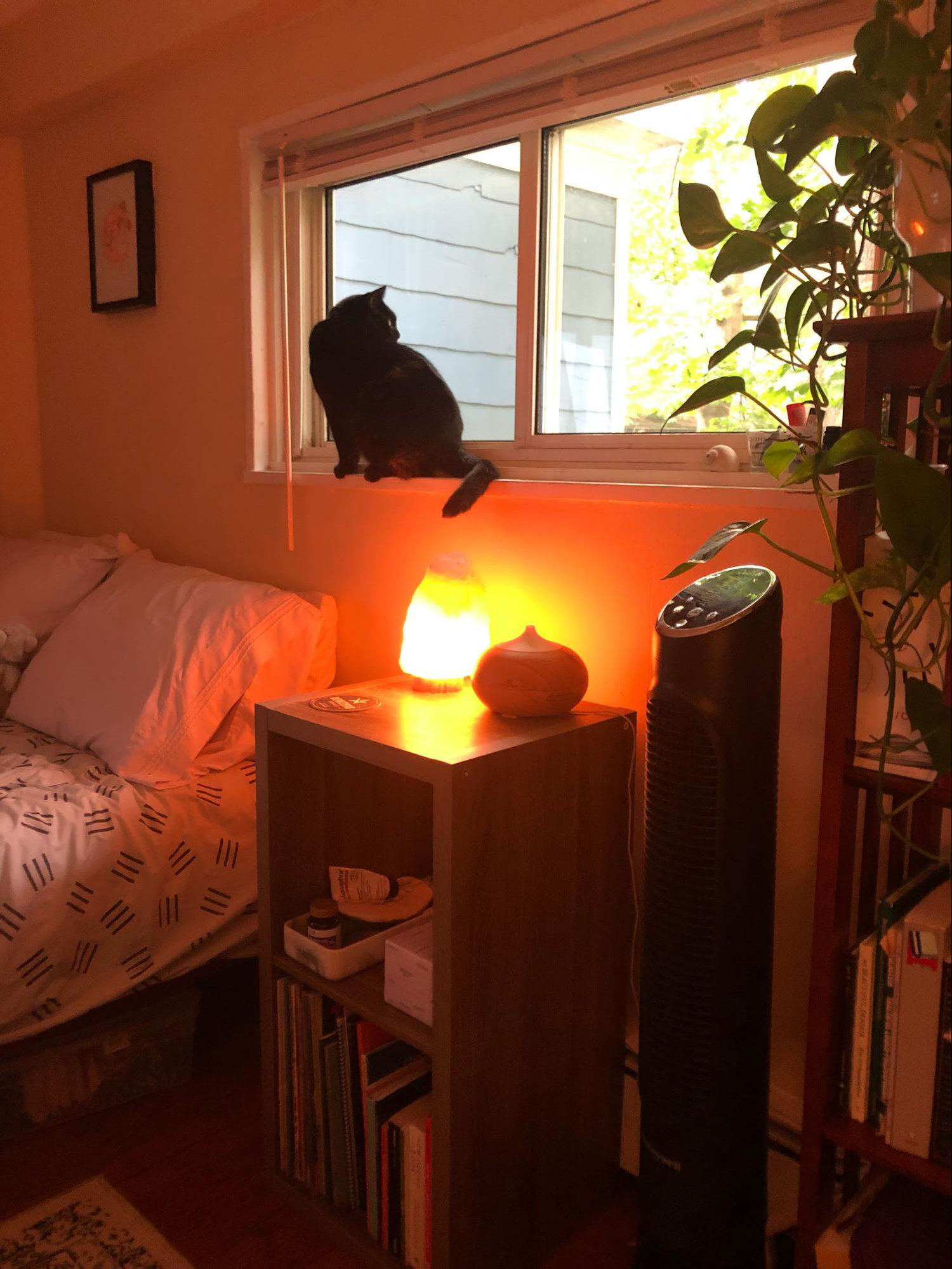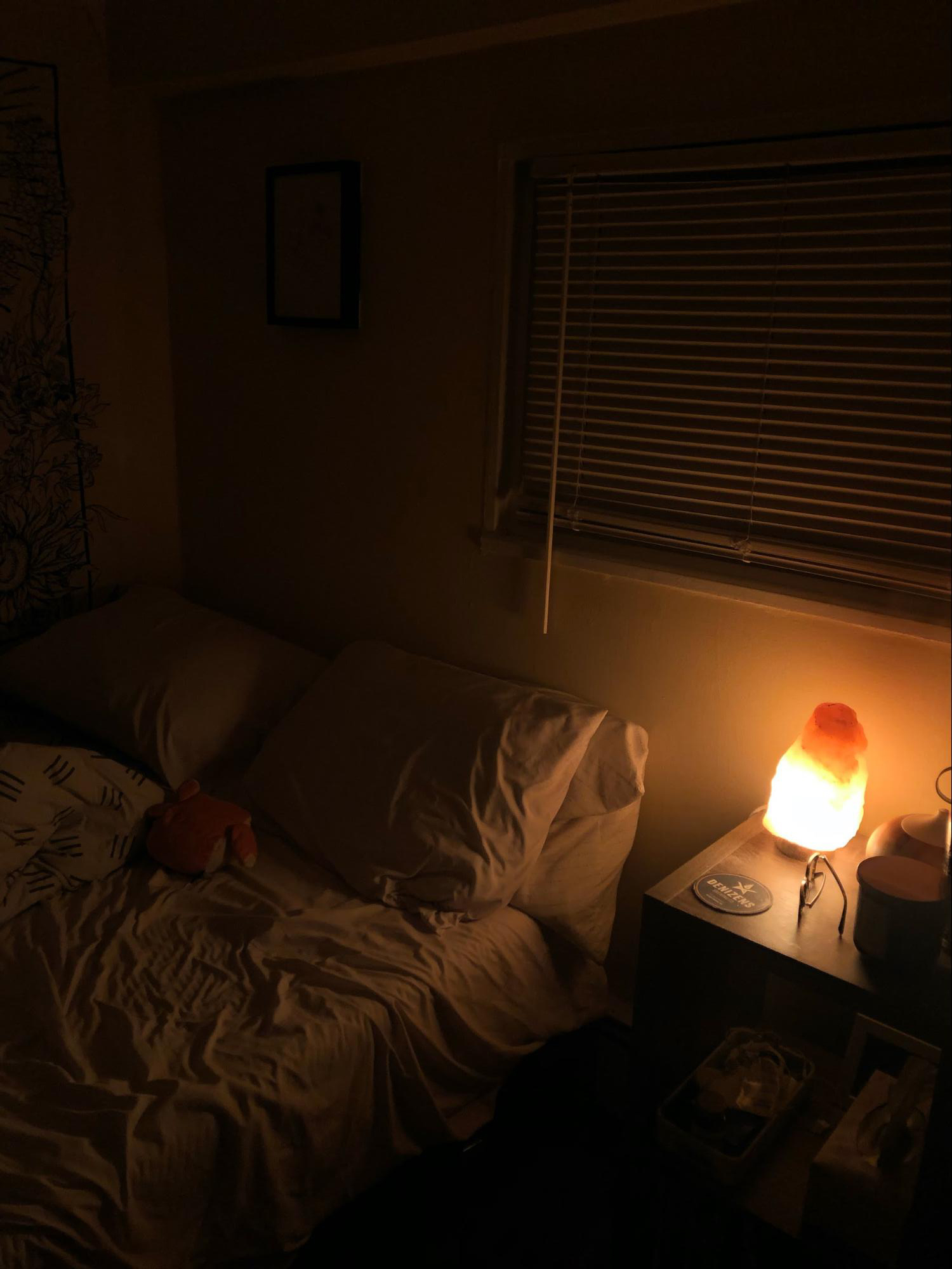How I Sleep to Success
By a Writing Center Coach
It took me an embarrassingly long time to learn how important sleep was for my basic functioning. In high school and early college, I found it difficult to get myself to go to sleep at a reasonable time, usually due to chatting late into the night with friends. I remember being very proud of being able to hightail it out of bed and plop down in my morning class in less than ten minutes. I did go to class, which is what I took to be some measure of success. But I certainly wasn’t enjoying my time rushing, and I certainly wasn’t enjoying how lost I was in class due to still being groggy.
I don’t know what exactly made me change my tune, but once I started juggling more responsibilities later in college, I decided that staying up late was simply not worth the absolute dredge that my day would become when I tried to function on four or five hours of sleep. Once I actually started to set sleep goals for myself, I noticed an enormous difference in my energy levels—both my nerves and my wallet were ecstatic that I was no longer buying five cups of coffee a day! I felt like I was able to do a much better job participating in class or work: the first thirty minutes of class in the morning could be spent contributing, rather than trying to wake up! What’s more, I felt like a more productive person: although staying up late had given me time to do plenty of things, I discovered that I was much more successfully productive during the day. There was so much more of the day that I could take advantage of and fill up in a well-rested way.

This change in sleep routine certainly didn’t happen “over night.” One strategy that I used while trying to get my sleep schedule on track was the implementation of gradual changes in my lifestyle. At first, my sleeping schedule was all over the place—some nights I’d fall asleep at three in the morning, other times closer to one. My wake-up time also varied hugely. To start enforcing some regularity, I began to go to sleep at 1am and get up around nine or ten, which happened to work with my class schedule. This worked fine for me—the most important thing about this schedule was that I was able to be consistent with it. Being able to anticipate and plan around energy levels was great for being able to keep myself on track with my responsibilities.
It was also helpful for me to be honest with myself about my natural sleep cycle. It’s really important for me to have a lot of unwinding time before sleep, and depending on my workload, that might push my bedtime up to midnight. I’m just going to be miserable if I try to go to bed around 10, even if it means I might be able to wake up super early. This is especially true while existing in the COVID era! The lines between work and home can get so blurred that it can be difficult to really feel like the workday is ever “done”—so allowing myself this unwinding time helps my body start to relax and get ready for bed. I’ve been watching The O.C., 2003’s famed teen soap, and the woes of the rich and beautiful really help me relax, knowing my life is far less complicated.
As far as items I use to help my sleep, I really find that I benefit from using my essential oil diffuser before and during bedtime. I love to put some drops of lavender essential oil in it and drift off. I’ll also take the time to turn off harsh overhead light and turn on softer, warmer light. This whole routine of setting up my diffuser and turning off some lights help signal to my body that it’s time to sleep.

It took me a while to come around to prioritizing sleep, and I would usually roll my eyes at articles like this, unconvinced of the importance of it all. But I can honestly say that I am a thousand times happier and more energetic now that I’ve taken the time to prioritize my rest.
This blog showcases the perspectives of UNC Chapel Hill community members learning and writing online. If you want to talk to a Writing and Learning Center coach about implementing strategies described in the blog, make an appointment with a writing coach or an academic coach today. Have an idea for a blog post about how you are learning and writing remotely? Contact us here.

